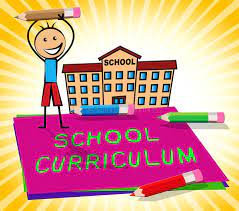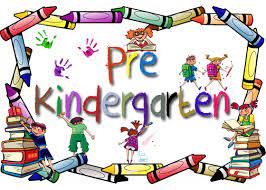I wanted to start this blog post off by giving a HUGE "shout out" to GHS Junior Khove Chubbuck who allowed me to tag along with him for the day yesterday. This is the first time I have been able to shadow a student since the Pandemic. I was able to attend an English class and an AP World History class with Khove before also having lunch in the cafeteria and spending time in the guidance office chatting.
I always love the time I am able to spend with students and by shadowing students I not only get a little of that time, I also get to experience a small part of their school day. This helps me remember (even though it was many years ago now) what it feels like to be a student. Even more important than that, shadowing students like this helps me to remember what it SHOULD feel like to be a student in our schools! Needless to say, Khove was an excellent host who kindly provided for me a small, but important window into our student's experiences at GHS. THANK YOU Khove!
As always, I wanted to share some pictures of our student experiences these past few weeks...
Answer: In grade 7 students will gain knowledge of conception to birth, they will understand the basic ways to prevent pregnancy including birth control, contraception, and abstinence. Students will grasp a basic understanding of sexually transmitted infections, how they are passed, and how to lower risk of getting one.
In grade 8, students review conception to birth, students learn specific ways to prevent pregnancy including barrier devices, hormonal methods and abstinence. Students learn ways to prevent STIs and will be able to identify common STIs. At the end of these lessons students will be able to understand the importance of communication, decision making skills and healthy relationships.
GHS includes comprehensive family life education as part of our health education course. The course is primarily taken by 10th graders and is a one semester course that is part of our graduation requirements. The goal of our curriculum is to provide age appropriate, medically accurate information to our student, as well as to create an inclusive, welcoming environment that allows all students to feel open to ask questions.
As part of the course, students receive direct instruction about transmission, symptoms, and treatment for common sexually transmitted infections and HIV & AIDS. We review prevention and risk reduction strategies, as well as discussing strategies for talking to a partner about STI's. We review resources for accessing testing in our community, as well as the process for getting tested for STI's.
In regard to pregnancy prevention, we first spend time brainstorming the potential risks involved with choosing to be sexually active, as well as examining the benefits of choosing to wait. Students learn about the barrier and hormonal contraceptive methods available to them as teens. We have examples of all methods for students to see, and will review how each method works, how it is used correctly, effectiveness, as well as advantages and disadvantages associated with each method.
Over the last few years, the Gorham Schools have used the NWEA-MAP Tests (Northwest Educational Association - Measures of Academic Progress) as our universal screener in order to measure student growth and mastery of critical concepts in the areas of Math and Reading. The assessment is computer-based and adaptive, meaning the assessment adjusts the grade level of the items presented to the student based upon student response. This serves to accurately gauge their current progress and ability to master key concepts, aligned to grade level standards.
October = Reading and Math, grades 1-5
January = Reading and Math, grades K-5
May = Reading and Math, grades K-5
May = Science, grade 5
TIMELY REMINDER OF SAFETY & SECURITY IN OUR SCHOOLS
What a HUGE topic! First, and foremost I want to assure all parents/guardians, students and staff in Gorham that we take the safety and security of our school family members very seriously. Recent events in Sanford and nine other schools across the state show just how large an impact this topic can have on a school community, and the broader community as a whole even if the events turn out to be a hoax. The impacts were still very real. These recent events and events across our country demonstrate that these conversations are important and must be had at all levels in order to ensure the safety and wellbeing of our children. This is a "heavy" topic, but one that as a school system we know we must shoulder and shoulder well.
I could spend a very long time reviewing for families all of our various safety protocols, prevention programs, and communication plans because we absolutely have them. But I know, as a parent myself, that generally I don't need or want all that information. While I want to know these things exist, what I really want to know is the answers to these six questions:
1. What are we doing to prevent emergencies in our schools?
2. Are the Schools Prepared for any potential emergency?
3. How will I be notified if there is an emergency impacting my child?
4. How should I respond if there is an emergency impacting my child?
5. How is my child supported after an emergency situation while at school?
and most importantly...
6. Is my child safe while at school?
So I thought I'd spend a little time on each of these six questions, while encouraging parents/staff that may still have more detailed questions to please reach out directly to either myself (heather.perry@gorhamschools.org), Assistant Superintendent Porter (brian.porter@gorhamschools.org), or your child's building leaders to ask. We would be happy to answer any questions you may have. Here we go!
Question: What are we doing to prevent emergencies in our schools?
Answer: We have many prevention programs that are both operational in nature and programmatic in nature. Operationally, we do things like monitor internet/computer use, ensure our doors are locked, that staff have badges, that visitors check into our buildings that there are protocols in place for student pick up and drop off, and that allow us to generally control who is and is not in our school buildings. On the programmatic side, we have strong social work and guidance support for children and families, we have highly talented School Resource Officers, we have anti-bulling and harassment policies and programs, we have restorative justice programs, we embed social and emotional learning across our curriculum, we encourage children and families to get involved in our schools, and we work to make sure our schools are inclusive and that our code of conduct is truly alive in our schools. All of these things work together in tandem to maintain a positive culture and climate in our schools, based on positive relationships that help encourage students and families to communicate openly with us so that if they see something, they feel comfortable saying something, which allows us to respond quickly and effectively to issues of all kinds as they may arise.
Question: Are the Schools Prepared for any potential emergency?
Answer: Yes. I can say with confidence that we are as prepared as any school can be for any potential emergency. We constantly work with our community and state partners to ensure we remain prepared. With each circumstance that we deal with, we learn and grow and improve in our practices that prepare us more strongly for the next one. We have structured protocols that we use to analyze school threats called threat assessment decision trees. We use FBI guidance, and guidance from Homeland Security. We are in constant contact with our local emergency response teams. We have a district wide emergency plan that was created and is frequently reviewed and shared with our local emergency first responders. We have school based plans that we call our "Gold Plans" that are updated annually. We review these processes and procedures annually with staff. We practice evacuation drills, lock down drills and use of our A.L.I.C.E. protocols in age appropriate ways annually. We have radio communication protocols, we have designated rally points, off site evacuation locations, and other protocols for moving students to safety if needed. We have reunification plans that can be utilized if needed.
Can we be more prepared - the answer is always yes - but that is only because each situation we face or that others face is different and unique and informs our future practices in different ways. We constantly learn and grow, reflect on our protocols and procedures and constantly work to strengthen them.
Question: How will I be notified if there is an emergency impacting my child?
Answer: If there is a true emergency in our schools parents/guardians will be notified using our school messenger system. If the emergency is significant, we would utilize the email, text and phone message components of this system. If things are more informational in nature and no action is required by parents/guardians, we would utilize the email portion or text portion only. We will never send information out via social media regarding emergency situations. If you get information from a social media site stating there is an emergency at one of our schools, please know this is NOT official information from the school.
We realize that when emergencies arise, information can get out to families quickly. Often times, it is students themselves in our schools that text or message families that something is going on. Because of this, we work very hard to get official information from the school out to families as quickly as possible even if we are just notifying families of something and still may not have all the information needed to assess the full nature of the situation. If this occurs, we would continue to provide regular intervals of information to families via our messenger system until we do know the full nature of the situation and can communicate that effectively to you.
If there are specific steps we need parents/guardians to take, we would communicate those actions clearly and succinctly. If you see no specific steps listed, the communications are intended to be informational in nature and would not require action on your part.
Question: How should I respond if there is an emergency impacting my child?
Answer: First, and I realize just how difficult this is to say...but it really is important....try to remain as calm as possible in the moment. Know that we LOVE your children almost as much as you do and will be working to make sure they remain safe while in our care. The worst thing that a parent can do in a moment of crisis is to let emotions take over, jump in a car and try to drive to the school to get their child in a highly emotional state. This would not help school staff trying to respond. This would not help emergency responders trying to respond and this would not help your child.
Also know that trying to call the school directly during an emergency also may not be effective. During an emergency, our school staff will be focused on keeping students on site safe, not on answering outside phone calls. I know this sounds a little harsh, but this is the reality. Know and trust that the school will keep you informed and if we need specific actions from our families we will request those actions via our messenger system. Also know that if we need to set up alternative ways for families to get information, we will share that contact information with you via school messenger so you know who to call to get more information regarding your child.
In any emergency situation, our school's primary focus is on making sure your children are safe and that is where we will place the vast majority of our resources.
Question: How is my child supported after an emergency situation while at school?
Answer: We know and understand how traumatic emergency situations in school can be. On face value these experiences are traumatic, but in addition to that these types of situations can trigger other reactions for many students and staff that stem from previous traumas. Crisis situations are traumatic. Trauma is complex and requires a team of trained personal to determine how best to support its effects.
Each of our schools has dedicated crisis response teams whose role it is to assist school and district leaders in navigating what types of supports are needed for students and staff during and after a crisis situation. Perhaps we offer open doors to our social workers, or perhaps we look at more structured large group programming, perhaps we even do something to support the broader community. Each situation is dealt with differently based on the unique aspects of the crisis. The important thing to know is that we have a team of individuals at each school whose responsibility it is to ensure these supports are in place after any event and that your children are provided the supports that they need.
Question: Is my child safe while at school?
Answer: YES. Your child is as safe in our schools as they can be, and often much more safe in our schools than many other places. Although today's world is much more complex than it may have been when many of us were growing up - our schools remain some of the safest places for our students to be in this world. In Gorham, we love and care for your children almost as much as you do. We strive to create warm and safe learning environments based on positive relationships between all stakeholders. We understand that it truly takes a "village" to "raise a child" and act accordingly.
I hope this helps provide a little more information for families who might be curious about our emergency preparedness work in Gorham. As I said earlier, I'd absolutely encourage folks who perhaps seek more detailed information to reach out and ask additional questions. THANK YOU!
THREE PRE K STAKEHOLDER WORK GROUPS TO START WORK IN DECEMBER!
Our work to create two Pre K classrooms at Narragansett Elementary School to begin in the fall of 2023 is continuing and right on schedule! If you recall, this work is part of our "Bright Futures For Little Rams" Early Childhood Partnership Plan. This plan was developed in a year long community partnership process and is broad reaching in scope. Just one small piece is the development of these classrooms. Part of this plan identified that CDS services (Child Development Services - these are special education services for 3 and 4 year old children) are not being provided effectively to children and families who need it in Gorham. The goal of these two new Pre K classrooms at Narragansett will be to work to provide these much needed CDS services more effectively to our families.
We have done a great deal of initial big picture planning and thinking as a community to create these two new programs, but there is still A LOT of work to do to put the details in place that will ensure these programs are well operated and are meeting the goals that have been identified.
As a means of putting together these more detailed plans, three working groups have been developed that will work between January - March, 2023 to accomplish this very thing. I have outlined these below along with group membership so that if folks want to share ideas to help inform the process, you know who to reach out to. Please review below and reach out to each identified facilitator if you have things you'd like to share:
Group 1: Curriculum, Instruction and Assessment Planning Committee
Facilitated by Kim Fadrigon
This group will work on making final selections on curriculum, assessment practices, data collection,
program monitoring and what types of instruction we will be focusing on for developmentally
appropriate instruction of 4 year olds and how these practices will all mesh with our existing K-12 systems.
Stakeholder Members:
*=group facilitator
Group 2: Playground & Learning Environment Planning Committee
Facilitated by Brian Porter
This group will assist in design for a new inclusive and developmentally appropriate playground space
and for what the actual physical learning spaces in the classrooms will be designed for. This group will
determine design, layout and needed equipment orders to create these spaces.
Stakeholder Members:
*=group facilitator
Group 3: Logistics Planning Committee
Facilitated by Erin Eppler/Nicole Poole
This group will work on creating enrollment processes, forms, paperwork and ensure we have smooth
processes in place to onboard our new families and communicate effectively with them as we welcome
them to our schools. This group will also finalize schedules and identify and secure needed partnerships
with organizations such as CDS.
Stakeholder Members:
*=group facilitator
THANK YOU to everyone who has agreed to serve on these committees! Our first large group meeting will be held on Dec. 12 at 6:00 p.m. at Narragansett Elementary School and then individual groups will organize themselves from there. I'll do my best to continue to provide updates on this work as we go. Please reach out if you have questions, or would like to get involved!
SO, DO YOU KNOW WHAT ELOS ARE?
Education is full of acronyms! One of the newest ones is one we are passionate about here in Gorham - ELOs. E.L.O. stands for "Extended Learning Opportunities" and we have been very active in Gorham about building out access to these incredible learning opportunities for our students!
The Extended Learning Opportunity (ELO) program at GHS better prepares students for work, college, and citizenship. The program connects students with an outside mentor in the form of an internship, job shadow, work study, or specialized project in their desired career field based on their skills and interests. These are genuine opportunities for students to merge their various interests and passions with their academic lives at school. Similarly, it is a vehicle for students to demonstrate independence and complexity of thought as they build bridges from their high school careers to their future academic, professional, or vocational lives.
Want to learn more about our ELO program? Check out this incredibly informative website created by our new ELO instructor Grace Olsen to learn more! https://sites.google.com/gorhamschools.org/elo/types-of-elos
DECEMBER ASPIRE GORHAM UPDATE READY TO VIEW!
I am constantly AMAZED at the incredible work going on across our schools and our community through our Aspire Gorham program! Check out the latest information on what is happening by reading December's Newsletter LINKED HERE!
TICK DATA COLLECTION PROJECT WITH GMS
SCIENCE STUDENTS!
Our students definitely get "out there" in their learning environments! I thought I'd share a little information and some pictures from just one small example at GMS with a 7th grade science class that is doing some data collection as part of a state wide 4-H Tick Project.
Students are doing monthly "tick drags" through 4 different habitats (field, forest, forest edge, and knotweed patch) to see where and when ticks are present. Their data will be entered into a database and students will analyze the data in the Spring and following schools years. This work is being done as part of the 4-H Tick Project, a community science project engaging K-12 youth and educators, made possible through a partnership between 4-H Youth Development, UMaine Cooperative Extension Tick Lab, Maine Forest Tick Survey, and members of the Learning Ecosystems Northeast project.
Last month, students did their November data collection and they didn't find any ticks in any of the locations. They did find some deer ticks in October. Here are some pictures below...try not to squirm when you look - certainly data worth collecting to help prevent lyme disease and great way to connect classroom learning to real world implications!
If you are interested in catching some great music performed by some of our budding musicians here in Gorham, you'll want to mark this in your calendars!












No comments:
Post a Comment
Note: Only a member of this blog may post a comment.